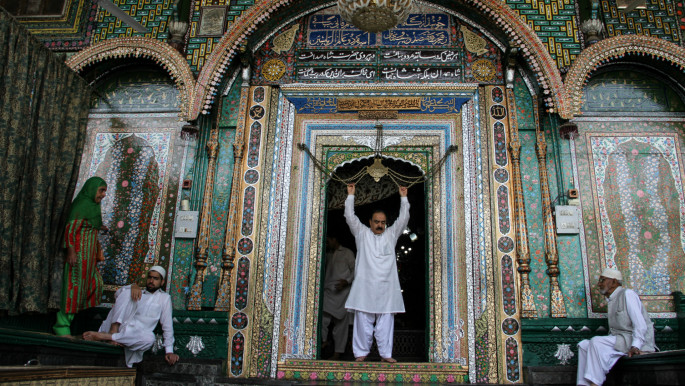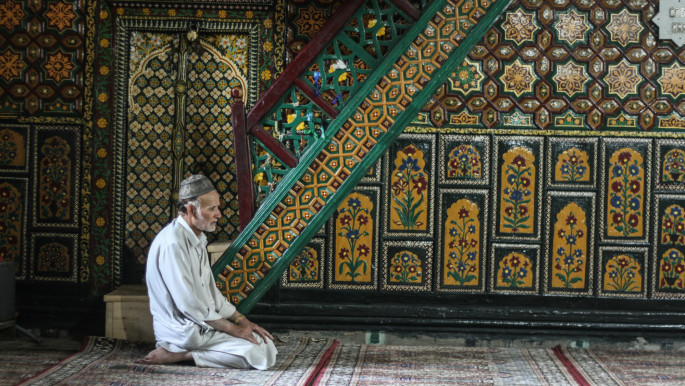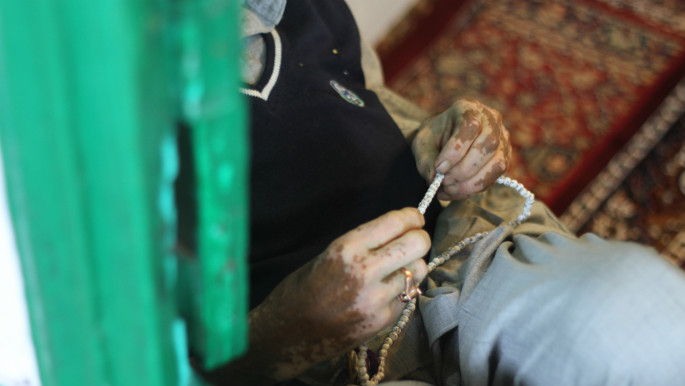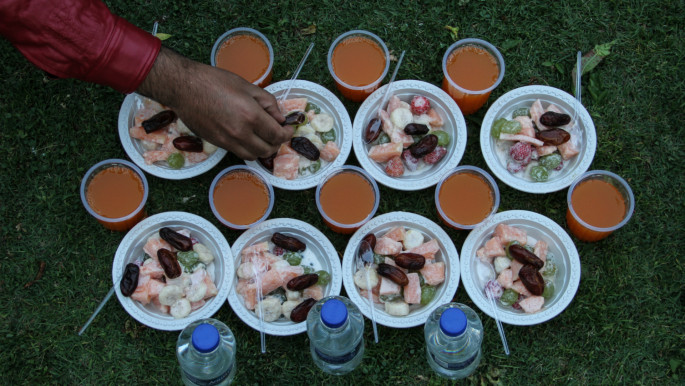Kashmir is the disputed territory between the nuclear-armed India and Pakistan. Nearly 70,000 people have been killed after the eruption of armed revolt against Indian rule in the late 1980s.
Beyond the conflict in the valley, Kashmir's culture is certain to make any outsider fall in love. Ramadan is observed with full devotion in the valley.
|
 |
Ramadan used to be most favourable time in Kashmir; there used to be Saharkhans who would wake up people, little girls used to gather at Iftar time in small villages and used to sing the Sufi songs praising the holy month |
 |
|
Suhoor, the pre-dawn meal and Iftar, the fast-breaking evening meal, are prepared with mouthwatering delicacies. The environment turns serene when the announcement of Suhoor is made on the loudspeakers in mosques or when family members sit to break the fast. In most mosques, people sit in long lines on either sides of a dastarkhawn (table-cloth) to break the fast; locals contribute fruits, dates or juices or other delicacies served during the period.
In most homes, people prefer to break fast with the Babri tresh, basil seeds mixed with milk, along with firni, a sweet dish made with rice and milk - or tea and handmade chapatti.
After people are done with eating their food, they start gathering in mosques to offer Taraweeh prayers.
Most of Kashmir wakes up to the drum-beating of a Saharkhan. He walks the streets with a drum hanging from his shoulders to wake people up for Suhoor before the day's long fast. The practice dates back to the time when there were no alarm clocks, mobile phones or loudspeakers. He has the duty of beating the drum, knocking the doors of houses or shouting just to make sure that no one misses the Suhoor.
But even in this modern era, people still prefer to pay Saharkhan a little at the end of the month to keep the tradition alive. In the early 1990s, when armed insurgency started in Indian-administered Kashmir, the Saharkhans began to disappear from the streets and roads in the valley.
The bloodshed of conflict put everything under siege for the following few years.
However, for the past few years Saharkhans have started re-appearing in Kashmiri neighbourhoods.
Gull Mohammad, from Anantnag, nostalgically told The New Arab: "Ramadan used to be most favourable time in Kashmir; there used to be Saharkhans who would wake up people, little girls used to gather at Iftar time in small villages and used to sing the Sufi songs praising the holy month."
At that time there used to be limited means of entertainment for the people of the valley but with the advent of new technology such as mobile phones and television, the tradition of singing in the month of Ramadan has faded away from popular culture.
People in the valley begin shopping for Eid-ul-Fitr a week before the festival. Most of the markets remain decorated and full of activity.
"People are very enthusiastic for celebrating Eid. Markets are crowded with people buying different type of baked goods and sweets. I hope violence will stop with the end of this month," Tawheed Mir from South Kashmir told The New Arab.
In Kashmir, people have been carrying out anti-India protests not only after Friday prayers but also on festivals such as Eid to demand freedom from India. For the past few years, these protests have often turned deadly, with protesters killed by Indian troops, casting a shadow over the festivity. This year, people are hoping that the ceasefire will make a difference and hopefully ensure better times after Eid.
All photos by Sameer Mushtaq.
 |
|
The drumbeater shouting in the deserted streets of Anantnag [Sameer Mushtaq]
|
|
 |
|
A woman pleas to God outside a Sufi Shrine, Khanqah-e-Moula in Srinagar [Sameer Mushtaq]
|
|
 |
|
A devotee reciting Quran inside the Shrine of Zain-u-Din Wali in Ashmuqam In South Kashmir [Sameer Mushtaq]
|
|
 |
|
Devotees show up in large number to the Sufi shrines in the month of Ramadan [Sameer Mushtaq]
|
|
 |
|
People like to sit inside the mosques or Sufi shrines to offer prayers in the month of Ramadan [Sameer Mushtaq]
|
|
 |
| Tasbeeh beads are used to keep count of words for the praise and glorification of Allah [Sameer Mushtaq] |
|
 |
|
People having Iftaar inside the mosque just before the Magrib prayers [Sameer Mushtaq]
|
|
 |
| Magrib prayers are offered immediately after the fast is broken [Sameer Mushtaq] |
|
 |
|
Iftaar being prepared outside the mosque in Anantnag, South Kashmir [Sameer Mushtaq]
|
|
 |
|
Crowded markets in Kashmir for Eid-ul-Fitr [Sameer Mushtaq]
|
|
Aijaz Nazir is a freelance journalist from India. He has been published in Tehelka, Firstpost, Huffington Post and the Asia Times Online.


![Kashmir Ramadan 3 [Sameer Mushtaq] Kashmir Ramadan 3 [Sameer Mushtaq]](/sites/default/files/styles/image_345x195/public/media/images/8904106C-D86B-4454-817B-6105BFB85514.JPG?h=d1cb525d&itok=b50W1pX7)












